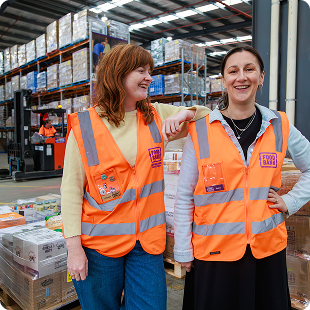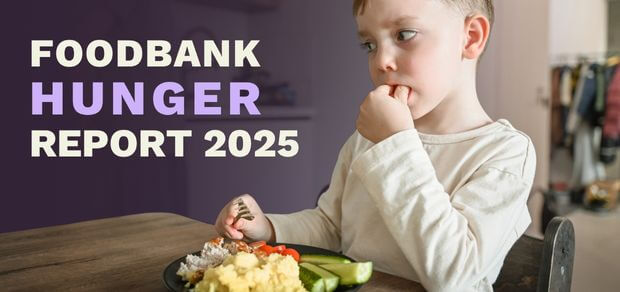Hunger crisis deepens, now affecting 480,000 Queensland households

5 November 2025
There’s been a significant increase in the number of Queensland households experiencing hunger – with 22% now going without meals, up from 19% the year before.
There are now nearly 480,000 households in Queensland experiencing hunger, an increase in 81,600 households since last years report was released. That’s the equivalent of all the households in the Gold Coast and the Sunshine Coast experiencing hunger.
Foodbank Queensland CEO Jess Watkinson said the figures were alarming and showed severe food insecurity – households going hungry, skipping meals or going days without eating – was a growing concern.
“The Foodbank Hunger Report highlights that hunger is affecting Queenslanders across all walks of life,” said Ms Watkinson.
“Your neighbour, your workmate or your classmate may be skipping meals, because they simply can’t afford to eat.”
Ms Watkinson pointed out that 56% of households including someone with a disability or health issue are now experiencing hunger; up from 44% last year.
“These households are forced to make the impossible decision between paying bills, buying medicine or putting food on the table.”
The Hunger Report will be launched in Queensland at The Y Cannon Hill Community Centre, which provides food support to up to 200 people every week.
Wendy Blackmon, Centre Coordinator, said the need has never been greater.
“We are seeing more and more employed Queenslanders, who have a mortgage or rent, reach out for assistance. This is because of the increase in cost of goods, rents and interest rates over the past few years,” said Ms Blackmon.
The Hunger Report found 31% of Queensland mortgage holders, and 50% of renting households are experiencing food insecurity. Despite a focus on reducing the cost of living, 91% of respondents reported the cost of living as the biggest driver of their food insecurity.
“We know from the QCOSS Community Data Profiles that food was the most frequently searched support needed – nearly twice as common as housing,” said Ms Watkinson.
“With the median rent currently at $600 per week, the impact on household budgets, and their capacity to purchase nutritious food is significant. If you add just one unplanned bill into the mix, you will often have a very small amount of money leftover for food, and you may need to access food relief just to have enough food to get you through.
“And we know that all the food relief services combined are only meeting 37% of the need.”
Foodbank Queensland provides food relief through their network of 350 Members, and also provides School Breakfast Programs, which play a crucial role in supporting children’s health, learning and wellbeing, especially for those facing food insecurity. Providing breakfasts in schools allows children to access food to start their day, and takes one meal pressure off families.
Foodbank Queensland has a waitlist of schools and will roll out an extra 100 School Breakfast Programs across the state this financial year, ensuring more students start their day nourished and ready to learn.
 Log in
Log in
